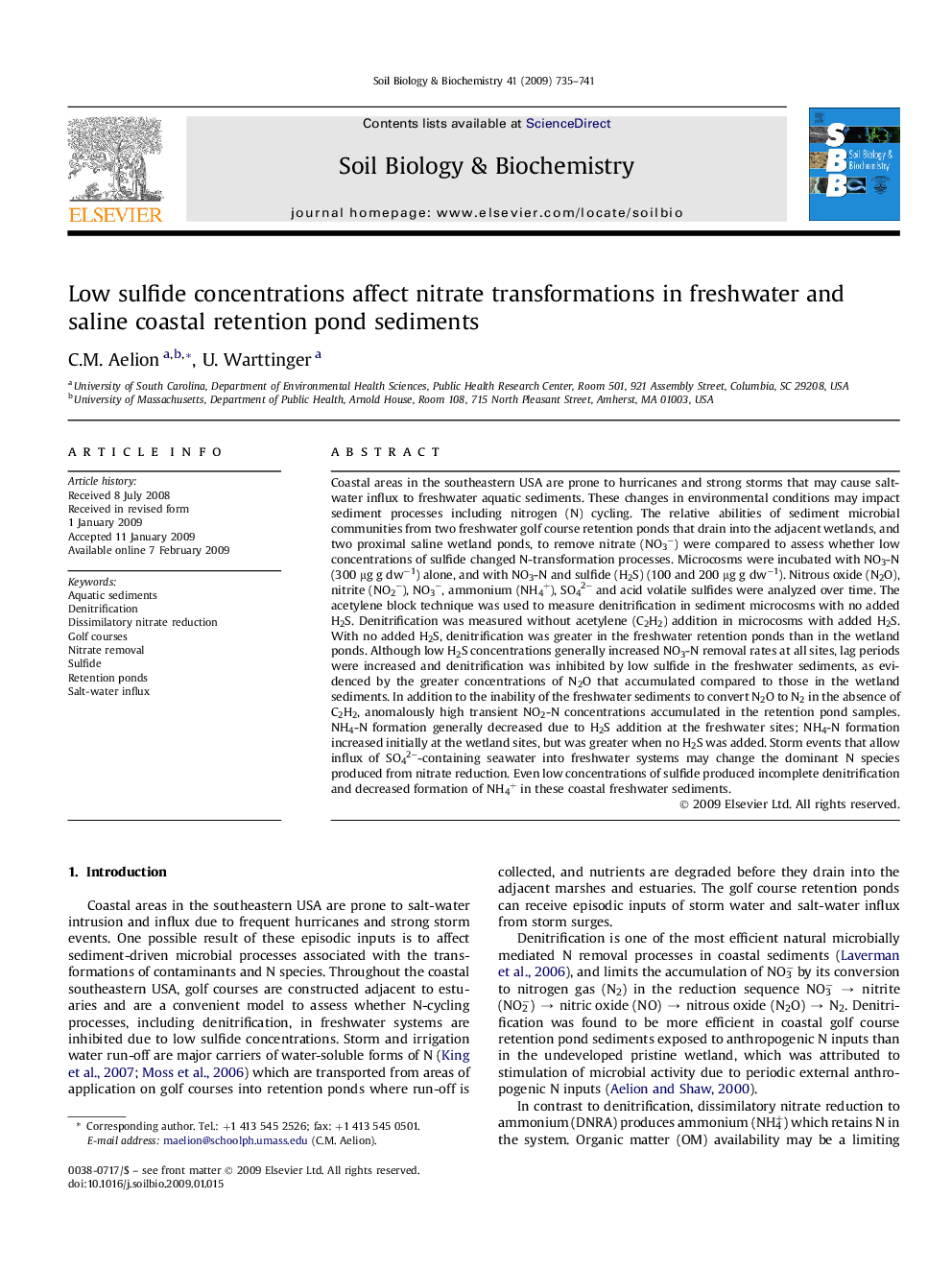| Article ID | Journal | Published Year | Pages | File Type |
|---|---|---|---|---|
| 2026534 | Soil Biology and Biochemistry | 2009 | 7 Pages |
Coastal areas in the southeastern USA are prone to hurricanes and strong storms that may cause salt-water influx to freshwater aquatic sediments. These changes in environmental conditions may impact sediment processes including nitrogen (N) cycling. The relative abilities of sediment microbial communities from two freshwater golf course retention ponds that drain into the adjacent wetlands, and two proximal saline wetland ponds, to remove nitrate (NO3−) were compared to assess whether low concentrations of sulfide changed N-transformation processes. Microcosms were incubated with NO3-N (300 μg g dw−1) alone, and with NO3-N and sulfide (H2S) (100 and 200 μg g dw−1). Nitrous oxide (N2O), nitrite (NO2−), NO3−, ammonium (NH4+), SO42− and acid volatile sulfides were analyzed over time. The acetylene block technique was used to measure denitrification in sediment microcosms with no added H2S. Denitrification was measured without acetylene (C2H2) addition in microcosms with added H2S. With no added H2S, denitrification was greater in the freshwater retention ponds than in the wetland ponds. Although low H2S concentrations generally increased NO3-N removal rates at all sites, lag periods were increased and denitrification was inhibited by low sulfide in the freshwater sediments, as evidenced by the greater concentrations of N2O that accumulated compared to those in the wetland sediments. In addition to the inability of the freshwater sediments to convert N2O to N2 in the absence of C2H2, anomalously high transient NO2-N concentrations accumulated in the retention pond samples. NH4-N formation generally decreased due to H2S addition at the freshwater sites; NH4-N formation increased initially at the wetland sites, but was greater when no H2S was added. Storm events that allow influx of SO42−-containing seawater into freshwater systems may change the dominant N species produced from nitrate reduction. Even low concentrations of sulfide produced incomplete denitrification and decreased formation of NH4+ in these coastal freshwater sediments.
